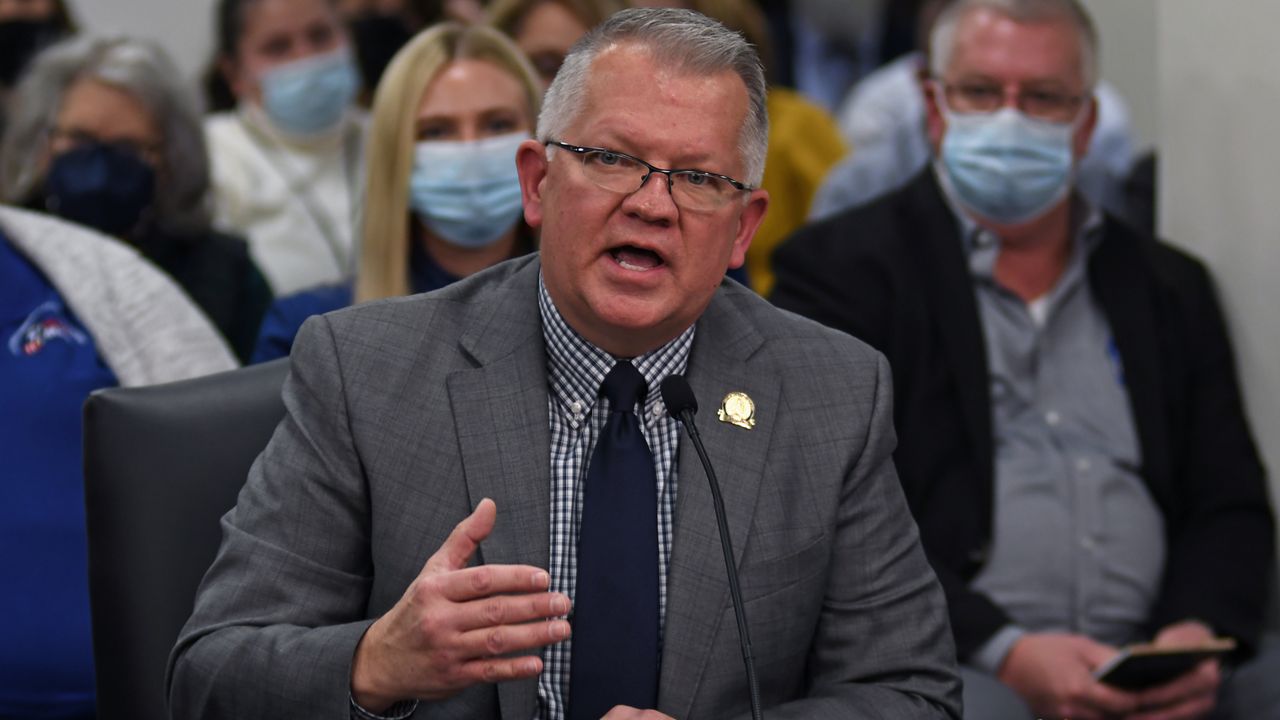FRANKFORT, Ky. — The Kentucky Senate voted overwhelmingly Monday to lay the foundation to attract nuclear energy projects to a state where coal has dominated and fueled the economy for generations.
Sen. Danny Carroll, R-Benton, said Kentucky should embrace a cross-section of sources — including coal, natural gas and renewable energy — to meet its energy needs, but stressed that his legislation would prepare the Bluegrass State for what he sees as the inevitable surge of nuclear energy.
“I believe that Kentucky needs to continue forward with an all-of-the-above approach,” he said. "However, I also firmly believe that nuclear is the future of this commonwealth. And it’s imperative that this commonwealth stay in the forefront and not get left behind.”
His measure passed the Senate on a 34-0 vote, with coalfield senators joining in support. The bill heads to the House next. Republicans have supermajorities in both chambers. By the same tally, the Senate adopted a related resolution directing the state Public Service Commission to prepare for nuclear energy.
To develop that foundation, Senate Bill 198 would establish the Kentucky Nuclear Energy Development Authority. It would be attached to the University of Kentucky’s Center for Applied Energy Research and would be governed by an advisory board with members representing various stakeholder groups.
The authority would be a nonregulatory agency on issues related to nuclear energy and its development in Kentucky. It also would support development of a “nuclear energy ecosystem” meant to enhance the economy, protect the environment, support community voices and prepare the future workforce.
The bill would set in motion a site suitability study to identify the best potential locations for nuclear reactors and related facilities. The authority would set criteria for voluntary designations as a “nuclear-ready community." Such a designation would signal to the nuclear industry that "these communities are open to nuclear –- whether it be a reactor, whether it be related industry,” Carroll said.
The accompanying resolution would require the Public Service Commission to review “every aspect of what they do to make sure that when that first licensure request comes, that they're not scrambling for six months to a year trying to figure out how to handle that particular situation,” Carroll said.
The package of nuclear legislation sailed through the Senate with little discussion. It resulted from legislative action last year that created the Nuclear Energy Working Group.
Sen. Robin Webb, D-Grayson, pointed to her ties Monday to coal and how times have changed. She described herself as "a former coal miner who never thought she’d be on a nuclear task force.” Webb also said the state needs to embrace a diversified energy portfolio for years to come.
Carroll has spent years advocating for an acceptance of nuclear energy, but said Monday that his legislation wasn't meant to minimize other energy sources, including coal.
“I don’t want anyone to be misled or to think that this bill is in any way being critical of coal, natural gas, any of the renewables, any other source of energy that we utilize at this point," he said.
Kentucky’s coal industry has declined drastically over the last two decades, with the state producing about a quarter of the coal it mined 20 years ago.
But the state still generates around 68% of its electricity from coal, though that number has declined from around 90% historically as the power generating industry closed coal plants and switched to generators powered by cheaper natural gas.
Nuclear energy is new territory for Kentucky, but some of its neighbors like Illinois and Tennessee have had reactors for decades. Tennessee’s two nuclear reactors provided around 45% of the state’s electricity generation in 2022, according to the Energy Information Administration.



